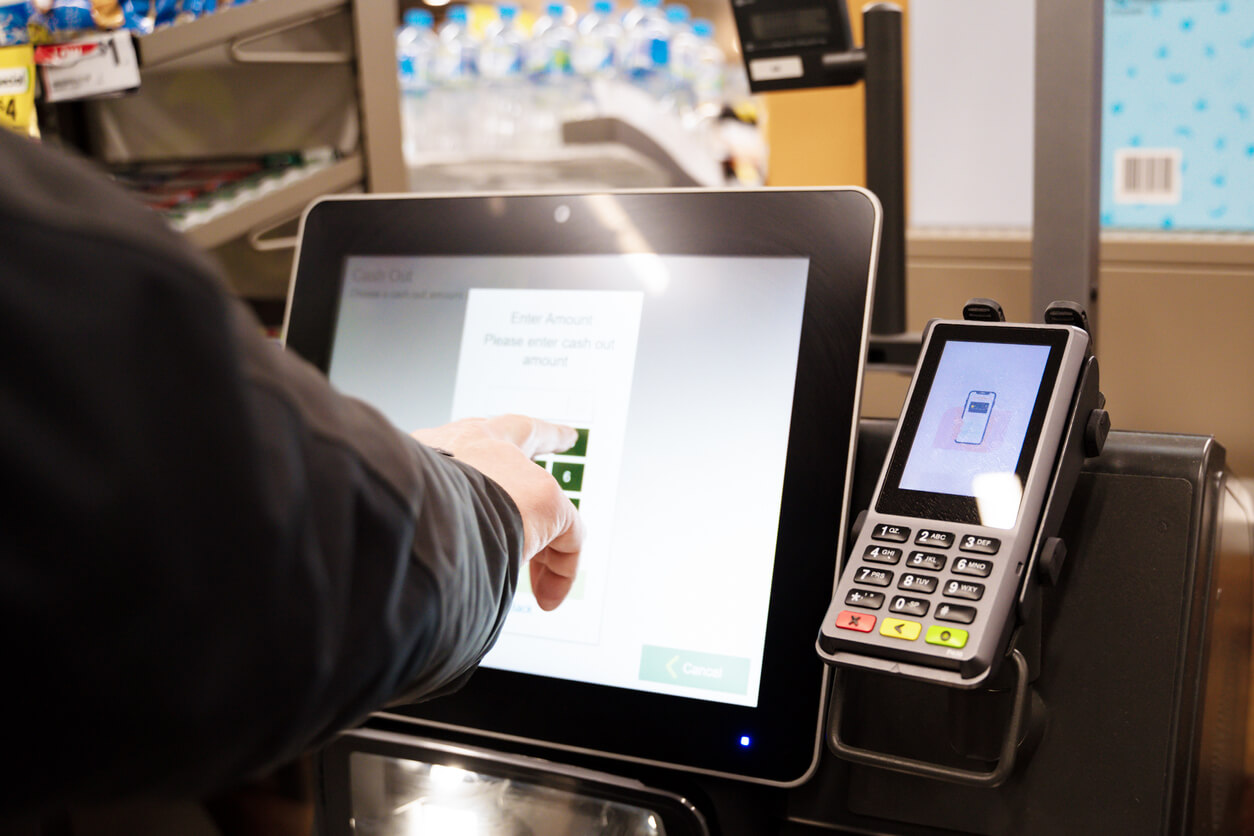If you’re like many shoppers, you don’t like dealing with the long lines that form at registers in ShopRite, Costco, or Walmart. One way around this is to go to the self-checkout line. This can save precious time, especially if you are only purchasing a few items. However, you can be setting yourself up for a charge of supermarket self-checkout theft. If you get distracted and forget to scan one of the items in your basket, or you enter the wrong code for those delicious grapes you’re buying, you could end up getting arrested and charged with shoplifting. At that point, you are going to need to retain a theft crimes attorney to help you navigate the legal battle you are facing.
Shoplifting using self-checkout lines has become a major headache for retailers across America. Last year, retailers were estimated to have lost $86 billion in retail theft, a significant portion of which is attributable to shoplifting. As a result, many local stores have become more aggressive in dealing with losses caused by shoppers cheating on self-checkout devices.
How does New York State treat self-checkout theft?
In New York State, the taking of any property without the permission of its rightful attorney is called larceny. Like most crimes in this state, there are different levels of legal culpability and seriousness. In the case of larceny, the level of the offense depends on the value of the property taken. So, if a person walks out of a Costco without having paid for items valued at less than $1,000, he or she may be charged with Petit Larceny. This is a Class A misdemeanor punishable by up to 364 days in jail.
If the person walks out of a Home Depot without having paid for property valued at over $1,000, then this person may be charged with the felony of Fourth Degree Grand Larceny. The highest level is for thefts of over $1 million and is called First Degree Grand Larceny. In many cases, a conviction for Grand Larceny could lead to a prison sentence.
What is criminal intent?
Under the law, criminal intent is the mental state of the defendant at the time the crime was committed. The prosecutor must prove that the defendant had a conscious objective or purpose in committing the specific crime. In other words, if you accidentally forgot to scan those grapes before you left Stop & Shop, you cannot be held criminally liable for larceny.
A great deal depends on the specific circumstances and facts of each case. Intent is usually proven through circumstantial evidence about the specific acts or knowledge of the person accused of the crime since it is impossible to really know what anyone is thinking at any particular time. Prosecutors will look at things like any statements you made when you were approached by a store worker after you left. They will also get testimony from the arresting officer. They may interview witnesses who watched you when you were checking out your items. Many self-checkout lines have cameras, so they will probably also review the video to look at your actions as well.
How can you defend yourself if you are accused of self-checkout line theft?
The temptation of many people when they are accused of wrongdoing is to attempt to defend themselves. They find themselves in a stressful situation and think they can talk their way out of a problem. This is fine up to a point. If you made an honest mistake or were distracted when scanning, you may be able to clear things up with the loss prevention person at the store. But too often people say things under stress that can actually work against them. This is especially true when they are dealing with law enforcement. If the store calls the police, you should probably consider invoking your Fifth Amendment right to remain silent and say that you will not discuss the matter unless your attorney is present. Believe it or not, your refusal to answer questions cannot be used against you to prove intent.
Your theft crimes attorney will work with you to show that this was an honest mistake and that you intended to purchase the items. It is also possible that you were the victim of mistaken identity and that another shopper was the one engaged in the suspicious conduct. There is also the possibility that the scanner malfunctioned and didn’t ring up the item you scanned. In any event, you should keep the receipt from the scanner as this can be crucial evidence to show that you didn’t intend to shoplift. For example, if you purchased $100 in groceries from Target and forgot to scan a $2 box of cookies, it will make it less likely that you will be the target of larceny charges.
Call our firm if you are charged with self-checkout line theft
If you or a loved one has been accused of shoplifting on a self-checkout line, call our law firm today. Michael A. Arbeit, P.C. is experienced in all aspects of criminal defense. We will fight hard to defend you against these charges. Whether you are charged with Petit Larceny, Grand Larceny, or any other criminal offense, you want an experienced criminal defense attorney for proper representation.

